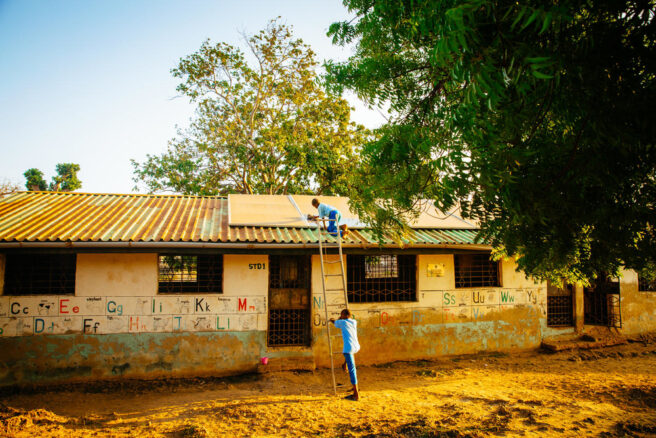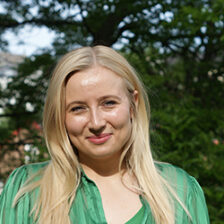Interested candidates should send their application clearly indicating how they meet the ‘Requirements of the evaluators’, including application letter, proposed methodology, budget, availability timewise to undertake the work and relevant resumes, to tender@wwf.no by 16.00 hrs Oslo time on 7th February 2025.
Tender: Final Evaluation of WWF-Norway’s Civil Society Portfolio 2021-25
WWF is seeking a consultancy firm/consultant to produce a final evaluation of the five programmes and the overall portfolio under the WWF-Norway "Civil Society Delivering of the SDGs for Nature, Climate and People" grant portfolio.

Background
This Terms of Reference (ToR) is for a final evaluation of the five programmes and the overall portfolio under the WWF-Norway "Civil Society Delivering of the SDGs for Nature, Climate and People” grant portfolio. Through this programme portfolio, WWF-Norway supports the implementation of five programmes on fisheries, climate and energy and infrastructure in seven countries to strengthen the capacity of local civil society organisations to influence and address the problems of weak governance, lack of corporate standards and unsustainable investments.
The portfolio is supported primarily by funds from Norad, with matching funds from WWF-Norway, totalling NOK 243 million. An overarching purpose of Norad’s support under this grant funding is to strengthen civil society in developing countries, and their ability to promote democracy, human rights and poverty reduction.
In 2021, WWF-Norway received a grant from Norad’s Section for Civil Society (SIVSA) to work on the programme portfolio. To contribute to the SDGs under the SIVSA grant, WWF-Norway aims to achieve four key outcomes as follows;
- Civil Society Organisations (CSOs) in Africa and China are strengthened and influence change.
- National and regional government in Africa and China develop, adopt and implement sustainable policies related to fisheries, energy or infrastructure.
- Companies in Africa and China adopt and implement sustainable standards and practices.
- Financial Institutions in Africa and China adopt and implement sustainable principles and standards and invest accordingly.
The geographic focus of the international grant portfolio includes China, Kenya, Uganda, Tanzania, Mozambique, South Africa, Madagascar and Norway, implementing the following five programmes (host country for the regional programmes in bold, and WWF-Norway project number in brackets);
- Africa Sustainable Infrastructure and Investment (China, Kenya, Tanzania and Madagascar) (5050)
- Africa Energy Transition (Uganda, China, Kenya, Madagascar and Tanzania) (5051)
- Promoting Sustainability in Chinese Fisheries in the Yellow Sea & South West Indian Ocean Programme (China) (5052)
- China Climate and Energy Transition Programme (China) (5053)
- Unlocking a Sustainable Blue Economy in the South West Indian Ocean Programme (Madagascar, China, Kenya, Tanzania, Mozambique and South Africa) (5054)
The programme underwent a mid-term review in 2023. As per WWF-Norway and WWF Network Standards, as well as the Grant Agreement between Norad and WWF-Norway, a final evaluation of the programme portfolio is required.
Purpose and objectives
The main purpose of the final evaluation is to provide WWF and stakeholders with an independent assessment of a) the achievements of the five programmes against their outcome and impact targets, and b) the overall programme portfolio against the outcome and impact targets in the overall results framework, focusing on impacts achieved by the programmes and the portfolio and identifying lessons learned.
The evaluation will be carried out against the set targets and three of the OECD DAC criteria for evaluation1, which will enable a clear assessment of the programme's achievements and potential legacy2. Typically, that means Effectiveness, Impact and Sustainability, as per the rational below:
- Effectiveness: This criterion is fundamental in determining whether the program achieved its intended objectives. It provides a measure of the programme’s success by examining if it delivered the expected outcomes and made progress toward the primary goals. In a final evaluation, effectiveness offers a clear picture of the program’s accomplishments.
- Impact: Impact is crucial because it assesses the broader, often long-term, effects of the program on the target groups and beyond. This criterion helps identify unintended consequences (both positive and negative) and broader changes that the programme may have catalysed. Understanding impact is essential to gauge the program's lasting influence on development challenges.
- Sustainability: As the programme concludes, sustainability becomes especially important. It examines whether the programme’s benefits are likely to endure over time, even without continued support. A final evaluation that emphasizes sustainability can reveal the programme’s potential for lasting change and its likelihood of building self-reliant systems or capacities within the target groups or sector.
These three criteria combined give a comprehensive view of the programme's immediate success, its long-term impact, and its potential for continued influence, making them the most valuable for this final evaluation. The other three OECD DAC criteria will not be assessed in the final evaluation, as they have been reviewed previously in the mid-term evaluations and the findings are largely still valid.
As such, the specific objectives of the final evaluation are to:
- Assess the five individual programmes’ outcomes and impact against the following three OECD DAC criteria for evaluation – 1) Effectiveness, 2) Impact and 3) Sustainability and make recommendations relevant for future similar programmes.
- Assess the overall portfolio outcomes and impact against the following three OECD DAC criteria for evaluation – 1) Effectiveness, 2) Impact and 3) Sustainability and make recommendations relevant for future portfolios of this nature.
- Assess the extent to which cross-cutting issues (gender equality, human rights, environment and climate, anti-corruption), have been factored into and influenced programme implementation and identify any specific positive or negative impacts related to these.
- Building upon the analysis in the Mid-Term Review (MTR), analyse how WWF-Norway and partner WWF offices managed the rapid changes, e.g. COVID 19 and related official responses, during the implementation period. The rapid changes noted should include COVID 19 as well as other changes relevant either at programme level or across several programmes, as well as adjustments implemented since the MTR. What learnings can be identified for future work?
- Assess the added value and related costs of WWF-Norway and the WWF Network, i.e. in addition to the role of the implementing offices to the achievements of the portfolio, and how this could be further enhanced in the future.
- Analyse the usefulness and realism in presenting detailed budgets for a five-year period as part of the initial application.
- Identify key lessons learned and recommend ways to promote future application of these, including, but not limited to, the localisation agenda3 and further strengthening of civil society.
- Address a limited set of specific questions that each of the five individual programmes may wish to add to their specific programme-level evaluations.
The key users and target audience for this final evaluation report are the WWF-Norway programme advisors and managers, the partner WWF offices who have led implementation, programme stakeholders and Norad. The final report will be included as a basis for analysis in WWF Norway’s Civil Society Grant portfolio final results report, and it will feed into future work undertaken by WWF-Norway and partner WWF offices.
Download:
Full terms of reference
Read the full terms of reference here:
Mode of application
Interested candidates should send their application clearly indicating how they meet the ‘Requirements of the evaluators’, including application letter, proposed methodology, budget, availability timewise to undertake the work and relevant resumes, to tender@wwf.no by 16.00 hrs Oslo time on 7th February 2025.
Interested candidates can email questions for clarification to Steven McQueen (smcqueen@wwf.no) and Inger Karoline Hovstein (ihovstein@wwf.no), and a written response will be provided, which will also be shared publicly on a Q&A on this web page.
For questions, please contact

Steven McQueen
Leder for internasjonalt naturvern og utvikling

Inger Karoline Vanvik Hovstein
Rådgiver, måling, evaluering og læring